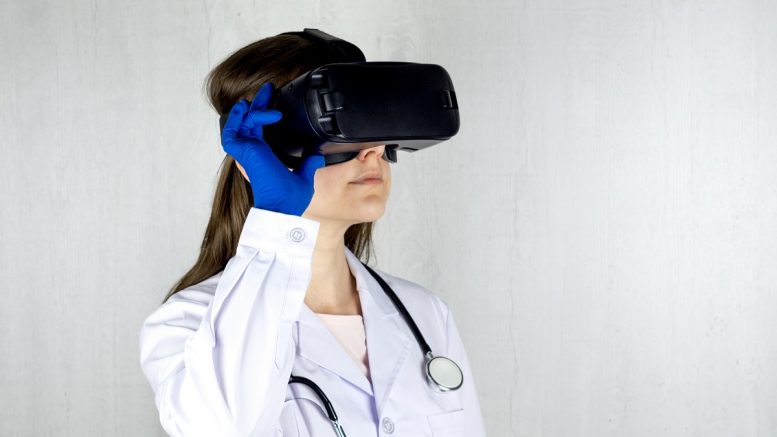Mental health and wellness; medical imaging and AI-based diagnostic software; and clinical trials technology proved most attractive to investors in 2021 according to a new report that highlights how venture and growth capital poured into healthtech investments, raising a total of $57.2 billion in funding in 2021, an increase of 79 per cent from 2020.
David Bell, director, Hampleton Partners, said: “Though new healthetch investments have been significantly concentrated around telemedicine due to the pandemic, venture capital is increasingly diversifying its healthtech targets, with AI-based clinical decision software and digital therapeutics being key areas.
“We also found that Europe was a hot spot for investment with funding rounds significantly exceeding the global average, with a 131 per cent increase to $6.7 billion in total investment from 2020 to 2021. European digital health funding now accounts for around 12 per cent of global investment, up from 9 per cent in 2020.”
In terms of M&A, across the whole healthtech sector, there were 601 acquisitions in 2021, up 13 per cent from 2020 and up 40 per cent from 2019. Ten healthtech deals closed at over $1 billion during 2021.
Mental health & wellness tech
The impact of the pandemic on individual mental health has been felt across the world. During this period, investment in mental health-related technologies reached $5.5 billion in 2021, rising 139 per cent since 2020.
Illustrative healthtech investments in Europe include UK-based Ieso’s $53 million Series B raise in November 2021 from VCs and CVCs including Morningside Technology Ventures, Molten Ventures, and Sony Innovation Fund. Ieso provides online Cognitive Behavioural Therapy (CBT).
In March 2021, US-based Ginger, a provider of on-demand mental health therapy, raised a $100 million series E round led by Blackstone, before merging with guided meditation app Headspace.
Medical imaging & AI diagnostics software
Advancements in Artificial Intelligence (AI) and Machine Learning (ML) have an increasingly broad application to productivity and diagnostics, including staffing productivity and imaging interpretation efficiency. Investment from VCs and CVCs has more than doubled from under $300 million in 2017 to $700 million in 2021.
PathAI, a provider of AI-powered technology tools to rapidly and accurately diagnose patients through biomarker analysis, as well as drug development, raised $255 million between their seed round in December 2016 and their latest Series C found in May 2021.
Clinical trials technology
The pandemic massively disrupted the traditional clinical trial model, in turn stalling drug development. This catalysed the need for innovation within the clinical trials process and investors have responded by targeting technologies that improve recruitment and participation.
This sub-sector has seen a rise in investment of 53 per cent from $1.8 billion in 2020 to $2.7 billion in 2021. Examples include California-based Medable, which provides a platform aimed at simplifying the clinical trial process, raised funds twice in 2021; a $78 million Series C and $304 million Series D, taking total investment to $507 million since 2015.
Meanwhile, Teckro, an Irish platform provider aiming to improve clinical trial participant enrollment, raised $25 million in a series D round in November 2021. The firm has raised a total of $66 million, with investment from Northpond Ventures and Sands Capital.
Healthtech Investments M&A 2022
Hampleton Partners anticipates that on the clinical side, companies specialising in disease tracking and testing, biopharmaceutical research and medical supplies are increasing their technology-based preparedness to take advantage of interoperability, virtual health, cloud-based platforms, artificial intelligence, and other emerging technologies.
On the patient side, a growing number of healthtech companies are focused on telemedicine, fitness, wellness, mental health, smart-foods, and personalised, at home health monitoring. While using telemedicine may have once been a niche personal preference, Covid-19 has made this mainstream.
David Bell said: “This backdrop has led to increasingly significant capital raising and M&A consolidation, especially as the enterprise healthtech market alone is projected to reach $1.3 trillion by 2025 and is showing no signs of slowing down.
“We anticipate overall sector volumes to be sustained during 2022, with valuations metrics in vertical software and precision medicine and online health to retain current levels due to their increasing importance within healthcare productivity and diagnosis.
“Given the surge in European healthtech investments during 2021, year on year growth in funding for 2022 is likely to be lower than 2021, but we anticipate deal volume will increase.
“Ultimately, healthtech is benefitting from adoption and digitisation during COVID. In Europe and the US, it is an increasingly important investor asset class.”





